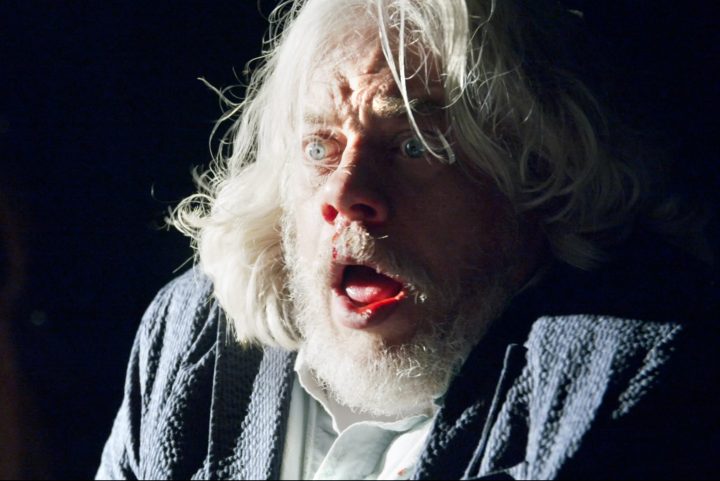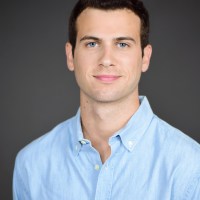Creativity does not come easily to many artists. It’s a gruesome and tiring process that can torture someone’s soul. To Spider One, that concept inspired him to write and direct the horror film, Allegoria. The film chronicles a group of artists struggling for inspiration and creativity. When their passions become obsessions, the artists begin to experience their worst nightmares as things take a turn toward the dark side.
Allegoria marks the feature-length directorial debut for Spider One, who is best known as the founder and singer of Powerman 5000. In conversation with Digital Trends, Spider One talks about authenticity in art, his relationship with his brother, Rob Zombie, and why he welcomes the challenge of directing Allegoria.

Note: This interview has been edited for length and clarity.
Digital Trends: I saw your tweet about Letterboxd. Are you on it?
Spider One: Of course. I think I have to write an article for a Letterboxd about the influences on Allegoria. So I better get on that today.
It’s such a good app. I go to it for all of my movies.
Yeah. The reason why I started using it is [that] inevitably, people go like, “Hey, have you seen any good movies lately?” And I know I’ve watched 30 movies and I can’t think of any of them so I just pull up my Letterboxd diary, like “Here you go. This is what I’ve watched.”
Have you found there to be any similarities or differences between your music fanbase and movie fanbase?
It remains to be seen what the movie fanbase will be if anything [laughing]. But, you know, I think there will be some crossover. Look, my music is expressed in a much different way than in the movie. But it really stems from being that kid that grew up in the 70s and 80s, being obsessed with science fiction and horror and comic books; it’s just ingrained in my DNA. What I’ve always hoped with the music and also now with movies is that there’s an authenticity that comes through, and I hope people can feel that. I think people do that.
I think people have pretty good bullshit detectors and they can tell when a person creating content really means it and is in a sense, “one of them.” I think that’s what is so fun about living in this genre world. It is more than just making a movie or writing a song. It is the community, and it’s not a passive experience. It’s something that people really invest themselves in, which I think is really exciting.
Allegoria is a collection of stories about a group of artists and their obsessions. The logline says, “They manifest monsters, demons, and death.” Where did this idea first originally come about?
It comes about from me living a creative life, and trying to exist as a creative person, which is a challenging thing to do. What comes with it is tons of self-doubt, tons of struggling with your own ego and insecurities, and just how art shares so many properties with horror. Even just descriptive terms that we use for artists are very much in the vernacular of horror. We describe artists as being tortured and suffering and selling their souls. These are all horror concepts. So the two worlds really made sense to me.
I do think whether you’re an artist or not, I think that everyone can relate to the struggles of being human and the struggles of doubting yourself or whatever it may be. I think it’s a very relatable idea. But put in the sort of absurdity of art, which in itself is an absurd concept, I think is really ripe for this idea of taking it to the next step and not only having manifest personal conflict but monstrous possessive threats. Yeah, it was a really exciting idea to follow.
You made the decision to film a collection of stories for Allegoria. Did the film start out as one singular story, and then you branched out for more stores? How did you decide to tell it this way?
Yeah, I mean that’s honestly exactly what happened. I shot the first scene, which was the acting story. I guess for my own mind, just a proof of concept, to see if this “art in monsters” thing had any legs. So we shot that, and then I couldn’t shake the idea that there’s more to this. There [are] so many avenues we can go down to explore, and that’s when I started to develop this idea of incorporating all these different art forms. But I knew, in doing this, I didn’t want to construct a traditional anthology where the stories don’t necessarily connect or have anything to do with each other.
I wanted to reverse engineer this idea where these characters, even though they may not share a scene, will share some connection. And this idea, maybe this curse, for lack of a better word, can be passed on through six notes on a piano or purchasing a painting from somebody or going to see a movie. So it became a really fun puzzle to put together; to make these things connect in, I hope, a fun watch for a viewer to discover those things as you go. I was trying to construct this sort of nontraditional way of putting the movie together.
Did you end up filming more shorts for the film, or was this the final project?
This is complete. There isn’t like a breakdancer story somewhere or something [laughing].
That would be interesting.
That would be pretty cool. God, you know what? I think I missed out.
You can always do a sequel.
Yeah, exactly.

One of the moments that stands out in the film comes from your partner, Krsy [Fox]. At the end of the film, she gives an emotional and chilling monologue. It’s so haunting to watch. What was the idea behind that speech?
Yeah, I appreciate that. That scene was really pivotal because if it didn’t work, I would feel like the movie didn’t work. You know I feel like we’re leading to this moment, and it really does switch the tone of the film. So it was a really important part of the movie, and so I try to approach it as such.
Generally, when you’re preparing to shoot, you’ll get together your actors and do a read-through and do a couple of rehearsals and discuss certain things. For that scene, Josephine [Chang], who plays Hope, Brody’s roommate, came over, and we were going over all the other scenes. We got to that [scene] and I was like, “I don’t want to rehearse this. I don’t want this to feel in any way scripted, [or] rehearsed. I want this to feel as real as possible.”
We discussed pacing. We discussed an aesthetic, a feeling, that we wanted the audience to get this uncomfortableness. I guess some humorous relief in some of Hope’s reactions, but really, the intent was to try to create this squirm factor [of] “how long is this going to go on.” So we got there and we shot it. I said I’m going to shoot this thing as few times as possible, and I’m going to shoot it dead on into the lens, and I’m going to shoot it over her shoulder, and that is it. We shot two takes and that was it. We nailed it.
You definitely nailed the squirm factor. You’re like, “Is this going to stop?”
You really want the audience to feel Hope wanting to get out of there, but [Hope] is feeling an obligation to a roommate to stick around to listen to this madness.
Your brother, Rob Zombie, is also involved in music and has written and directed many horror films. I was curious if he had any advice for you about directing this film.
I mean, not directly. We always talk about stuff and what we’re working on. But I’ve been asked that question before, and my answer to it is [that] his advice has been me just observing how he’s conducted himself in his career. In other words, there [are] very few people that are as uncompromising as Rob. It’s his way and that’s it, man. He’s very determined, and I look to that as being an inspiration because it’s so difficult — forget about being successful — making a movie or making an album or a TV show.
Whatever it is, or whatever goals you’re after, I think it’s very easy to bend and do what you’re told, and maybe compromise here or compromise there. It’s nice to have an example of somebody in your life that doesn’t do that. [He] really sets out with a vision and sees it to the end, for better or worse, it is what it is. I don’t know if he realized that he’s shown me that, but that has really been the best advice I’ve ever gotten.
I’m sure it’s been a blast being on tour with him as well.
What a great tour. Every show has been massive, and it’s been fun just to hang out. I described it as like a family vacation without our parents telling us what to do.
When you’re writing a piece of art, whether it’s a song or a film, does the creative process stay the same for you, or are they two totally different processes?
I think they’re just similar in a lot of ways. Sometimes the idea finds you, which I find more than not, is the process for me. I don’t usually sit down and go like, “Okay. I’m going to come up with an idea.” It’s like the universe opens up, hands you the ball, [and] now you have to run with it. You get a spark of inspiration.
Although communicating through film is a very different process than communicating through music, at the end of the day, it really does come down to communication. You’re trying to communicate an idea, an emotion, a concept of philosophy, so the intent is the same. The process is very different.
Do you have more fun going on tour or directing a film?
Because I’ve done so much touring, directing is, I don’t want to say more fun, but it’s presenting a new set of challenges, which is fun. Music, I’ve done it for so long that there [are] no nerves involved with it anymore. I played these songs for so many years that it’s still an enormous amount of fun to get out in front of a live audience and the reaction of people. But I really welcome this new chapter of feeling nervous and feeling unsure. Are they gonna like it? Are they gonna hate it?
We had a couple of screenings. I can get onstage and play for 100,000 people and not have one butterfly. But watching a movie in front of a hundred people, [my] palms were sweating [laughing]. I like that there’s this new thing in my life that I have to prove myself at. I have to take my lumps and criticisms, and I welcome [them]. It’s exciting.
Allegoria is on demand and streaming on Shudder.



